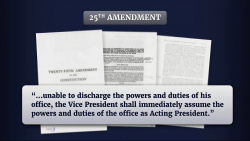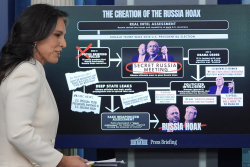A rejected contract by Boeing’s union workers risks a strike that could delay key defense projects, such as the sixth-gen F-47 fighter jet.
Aerospace giant Boeing is facing new turbulence, this time from its more than 3,200 union workers at its three St. Louis-area facilities, where the United States Navy’s F/A-18 Super Hornet is produced. The same factories could be critical to the United States Air Force’s F-47, the sixth-generation manned fighter that is the centerpiece system of the Next Generation Air Dominance (NGAD) program.
The Boeing workers rejected a proposed contract on Sunday that would increase wages by 20 percent over the next four years, raising the average salary to more than $100,000, along with other benefits. There was also a $5,000 ratification bonus.
International Machinists and Aerospace Workers Union told the media that the vote by District 837 members had been “overwhelmingly against” the proposal. Although the current contract expired at 11:59 p.m. Central Time on Sunday evening, the union has called for a “cooling off” period that will ensure workers remain on the job until at least August 4.
Union leaders had called upon members to approve the offer, but the workers voted against it.
“IAM Union members delivered a clear message: the proposal from Boeing Defense fell short of addressing the priorities and sacrifices of the skilled IAM Union workforce,” the union announced in a media release. “Our members are standing together to demand a contract that respects their work and ensures a secure future.”
The IAM Union, which represents approximately 600,000 active and retired members, said it “looks forward” to resuming negotiations.
“We’re disappointed our employees voted down the richest contract offer we’ve ever presented to IAM 837, which addressed all their stated priorities. We’ve activated our contingency plan and are focused on preparing for a strike. No talks are scheduled with the union,” Boeing said in its statement to the media.
Boeing Has Had Two Strikes in 2025
The threat of a walkout comes just a year after machinists at Boeing in the Pacific Northwest went on strike for 54 days, shutting down commercial airline production, including the 737 MAX, 767, and 777 airliners. That strike ended after Boeing offered a general wage increase of 38 percent over four years.
Boeing employs more than 170,000 people worldwide, but the strike in St. Louis would impact contracts with the US Department of Defense, notably the F/A-18 Super Hornet, as well as the Air Force’s T-6 Texan II, also known as the Red Hawk trainer. The aerospace firm has further expanded its manufacturing capabilities in the St. Louis area to handle work on the F-47.
Boeing has yet to announce its second-quarter earnings, which are expected later this week. However, the company previously reported that it delivered 150 commercial aircraft, along with 36 military planes and helicopters.
Multiple Strikes at Boeing Are Damaging Its Reputation
A strike just six months after being awarded the F-47 contract wouldn’t be a good look for the company, but it also serves to highlight the critical state of the aerospace and defense industrial base (A&D DIB). Boeing is currently working on the final batch of Super Hornets for the US Navy and is expected to shut down those production lines after the contract concludes in 2027.
Work will likely transition to the F-47, but there has been speculation that Boeing could also receive the contract to produce the F/A-XX, the Super Hornet’s next-generation replacement. However, with two strikes, following a slew of troubles for Boeing, it is hard to see how this scores the company any points with the decision makers at the Pentagon.
The costs of the F-47 and F/A-XX have also been a concern for lawmakers, and raising labor costs won’t help matters either.
About the Author: Peter Suciu
Peter Suciu has contributed over 3,200 published pieces to more than four dozen magazines and websites over a thirty-year career in journalism. He regularly writes about military hardware, firearms history, cybersecurity, politics, and international affairs. Peter is also a Contributing Writer for Forbes and Clearance Jobs. He is based in Michigan. You can follow him on Twitter: @PeterSuciu. You can email the author: [email protected].
Image Credit: Wikimedia Commons/US Air Force Graphic.















